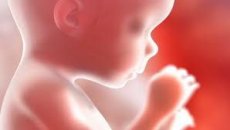Medical expert of the article
New publications
Human embryos can automatically correct errors in their own DNA
Last reviewed: 30.06.2025

All iLive content is medically reviewed or fact checked to ensure as much factual accuracy as possible.
We have strict sourcing guidelines and only link to reputable media sites, academic research institutions and, whenever possible, medically peer reviewed studies. Note that the numbers in parentheses ([1], [2], etc.) are clickable links to these studies.
If you feel that any of our content is inaccurate, out-of-date, or otherwise questionable, please select it and press Ctrl + Enter.

A new discovery was made by the European Society of Human Reproduction and Embryology. The author of the study is Professor William G. Kearns. He stated that human embryos with genetic defects can automatically correct errors in their own DNA, promoting the growth of normal cells and minimizing the vital activity of those cells that have the wrong number of chromosomes.
The doctor and his colleagues were able to witness a dynamic process that was called "genetic normalization." What is especially interesting is the fact that this phenomenon was observed in only a three-day-old embryo.
Currently, researchers are studying the mechanisms and processes in the body that make self-repair of cellular DNA possible. The results can be used in the treatment of infertility, as well as in the development of new types of stem cells. Tests conducted on pregnant women have shown that genetic mutations are quite common, but most of them self-liquidate during the first days of pregnancy. Due to the short time frame, it is extremely difficult to track such processes. As a rule, all changes occur before the fifth day of pregnancy.
 [ 1 ]
[ 1 ]

